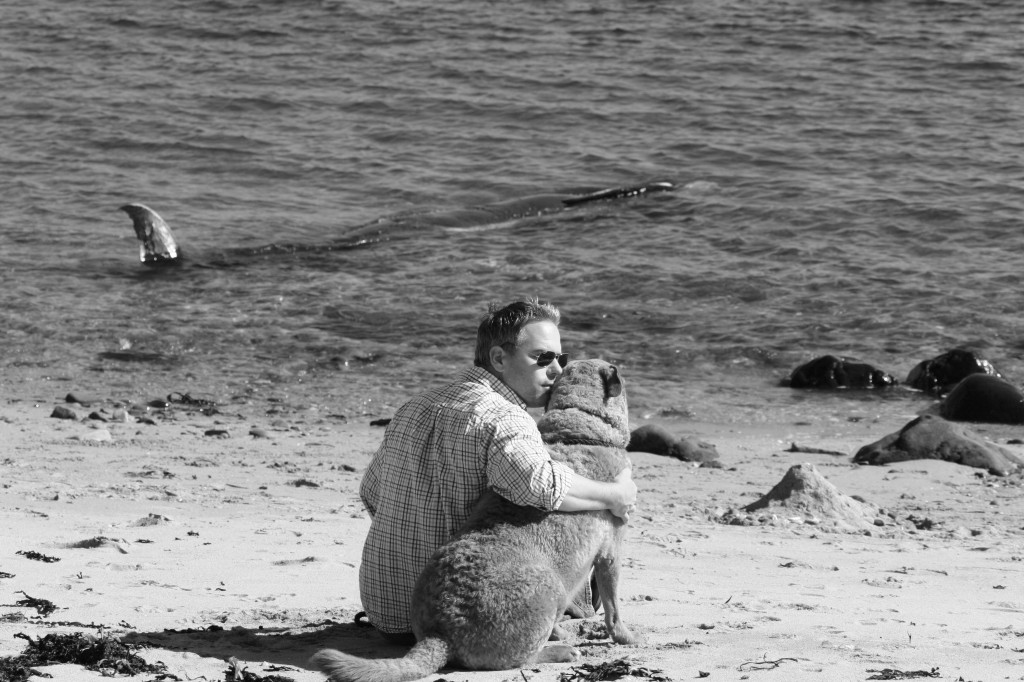Recently (2 September 2012), 26 pilot whales stranded on the beach about a mile from the place where we’re staying in Anstruther, Scotland. The whales came ashore just a few feet from the coastal path where we run with our dog, Wishart. Pilot whales are normally found in deeper water, so this was highly unusual and highly distressing. Many capable people from our research group at the University of St Andrews, Sea Mammal Research Unit, were at the ready to assist. In the United Kingdom, the British Divers Marine Life Rescue take the lead (with the help of veterinarians) on refloating the whales that are still alive. Later, postmortems, or necropsies, are performed on the whales that do not survive.
Every whale stranding is a loss. But, along with this loss is a scientific opportunity to learn more about why whales strand generally and why these whales stranded in particular. Marine mammals can strand for a variety of reasons including disease, starvation, entanglement in fishing gear, trauma from tactical sonar, and injuries from ship strikes. We look forward to hearing the results of the detailed necropsies conducted on the animals that died during this event. In addition to the animal welfare concerns, which are paramount, we see an important role for science to play in these strandings, because there are some tests that can only be conducted on animals while they are still alive. At a recent workshop on noise and stress, one of the biggest recommendations was that opportunities like this recent stranding need to be exploited to conduct stress-related research so that we can better understand the impact of human activities on whales. Every time we attend a meeting on ocean noise and whales, we’re reminded that we are still missing basic information on hearing abilities in many marine mammal species.
We understand that these whales are suffering, and the last thing they need is some cold-hearted scientist poking and prodding it to take a blood sample. These are inherently stressful situations. But just as you learn a lot when your doctor takes a blood or urine sample, these tragedies present an important opportunity to learn what we can from living whales to help us figure out why whales strand and advance our knowledge on marine mammal physiology and biology so that we can better protect the survivors and their habitat.
The resulting information dramatically improves our ability to answer the questions that everyone will ask after a stranding: Why did it happen? How can we prevent it from happening again?
If you see a marine mammal stranding, please contact the authorities in your country.
In the US
NOAA Marine Mammal Stranding Networks:
In Canada
Marine Animal Strandings and Entanglement Response Program
Toll Free: 1-888-895-3003
In the UK



Pingback:Whale stranding in Scotland » Oceans Initiative – Science for the Sea | Our Endangered Planet and it's Wildlife.